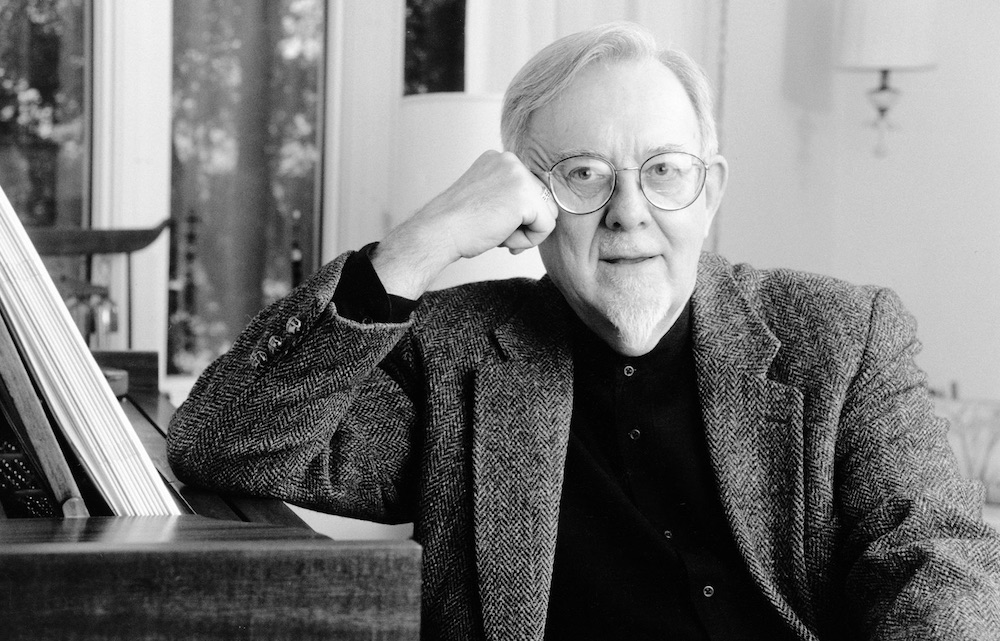If you ever had a chance to chat with Carl Schalk, you would certainly remember the twinkle in his eye and sentences primed for a bit of wit. I had a few occasions to experience this over the past fifty years but mainly I have watched his life’s work from a distance. What I observed suggests that he should be remembered as “Mr. Church Music,” an appellation that is not mine. I heard it used of him long ago.
Schalk’s high school and college education prepared him to be a teacher-musician in a parochial school of a Lutheran congregation. Indeed, his first position (from 1952 to 1958) was to teach and to direct music at Zion Lutheran Church in Wausau, Wisconsin. For the next seven years he was director of music for the International Lutheran Hour, which broadened his experience with the church and its mission. His vision of music in the worship life of a congregation never left him as he gained more skills in music theory (MMus from Eastman School of Music), a deeper acquaintance with theology (MAR from Concordia Seminary, St. Louis) and in 1965 began educating musicians for the church as a professor of music at Concordia College (later University), River Forest, Illinois. There he led choral groups, edited the journal Church Music (1966–1980) and helped establish a Master of Church Music program. He took on many other tasks that shaped music in the church, for example, as a member of the Music Advisory Committee of Concordia Publishing House and as a member of the committee which prepared the Lutheran Book of Worship (1978). To assist others in understanding the history and practice of music among Lutherans he wrote more than seventy articles and essays for various journals and edited and authored more than twenty publications, everything from small pamphlets to reference works. Three books seem notable: a group of summary essays in Key Words in Church Music; a brief history, Music in Early Lutheranism: Shaping the Tradition (1524–1672) and what had started as a hobby, collecting hymnals published by Lutherans in the United States, led him to tell their story in God’s Song in a New Land: Lutheran Hymnals in America.
His compositions were mostly choral pieces intended for worship in a congregation, whether it had modest, moderate, or abundant resources for musical performance. It is obvious that he viewed the task of writing music as something for those who were well-schooled in the art of music and could continue the long and rich history of Lutheran music. For him artful musical design was necessary, trite patterns, meant to satisfy listeners’ ears, were to be avoided and oversized, fancy pieces were best reserved for concert halls. A church composer’s task was to help deliver the divine message so the Holy Spirit could move a believing heart to trust God and serve the Lord. This led him to publish more than two hundred of his own pieces and more than sixty publications with works by other ancient and modern composers.
His interest in hymnody eventually turned to inventing melodies for new texts and once in a while for an old text with a tune that had lost favor. His crafting of melodies took off in 1969 when he wrote the tune for Jaroslav J. Vajda’s “Now.” It grew to more than twenty other melodies for Vajda’s poetry and numerous tunes for hymn texts by other authors, including Martin Franzmann, Henry Letterman, F. Pratt Green, Timothy Dudley Smith, Susan Cherwien, and Stephen Starke. In all there are more than eighty hymn and carol melodies by Carl and some of them made their way into hymnals of more than thirty denominations. Five of Carl’s tunes are included in the Lutheran Book of Worship and four in the Lutheran Service Book.
As a writer and lecturer, he argued for employing principles that drove the Lutheran heritage of church music. His theological themes were drawn primarily from Luther. One finds an emphasis on music as the “viva vox evangelii,” namely, that hymns and choral music can both express the praise of God and proclaim Jesus’s saving work. Understanding this, he maintained, is the key for every church musician who wants to analyze problems and find good solutions for the present age. This theme is easily seen in a collection of Carl’s writings titled Singing the Church’s Song (Minneapolis: Lutheran University Press, 2015).
Schalk carried these insights to many organizations—the Lutheran Music Program (later the Summer Music Program), the Hymn Society of the United States and Canada, and the Association of Lutheran Church Musicians. He was always ready to share his vision of how music could serve God’s mission. While his feet were planted in The Lutheran Church—Missouri Synod, his winsome erudition gave him frequent voice among Lutherans and other Christians in North America.
May Carl Schalk’s words and music echo widely for years to come.
James L. Brauer
Professor Emeritus


Leave a Reply
You must be logged in to post a comment.